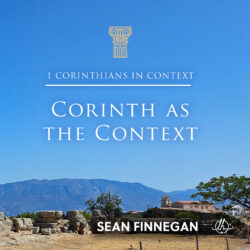 Determining the validity of capital punishment is a complex task, especially when approached from a Christian perspective. To arrive at a biblically informed decision we need to consider both the Old and New Testaments, giving special attention to the nuanced understanding the Apostle Paul gave in Romans 13. Furthermore, in America we have quite a few other issues we need to balance out such as the exorbitant cost of sustaining convicts on death row and the handful of cases where an executed person turns out to be innocent on the one hand, and capital punishment’s ability to deter crime and mete out justice on the other.
Determining the validity of capital punishment is a complex task, especially when approached from a Christian perspective. To arrive at a biblically informed decision we need to consider both the Old and New Testaments, giving special attention to the nuanced understanding the Apostle Paul gave in Romans 13. Furthermore, in America we have quite a few other issues we need to balance out such as the exorbitant cost of sustaining convicts on death row and the handful of cases where an executed person turns out to be innocent on the one hand, and capital punishment’s ability to deter crime and mete out justice on the other.
—— Links ——
- Check out the other episodes in the series on Killing
- Intro music: “Protofunk” by Kevin MacLeod. Licensed under Creative Commons: By Attribution 3.0 License.







This has been an interesting and thought stimulating series you guys have done, thank you for that. Can I expect a subsequent episode where you discuss a sort of ‘divine inflicted’ death, for example, the event with Nadab and Abihu in Leviticus 10; also the deaths of Ananias and his wife, Sapphira, in Acts 5? If yes, wonderful, if no, then perhaps you could consider it.
–Brian
I think this discussion has to take a lot more into account, but clearly this would take hours and hours to encompass it all… This is a huge subject really. But for example, such as Abraham saving Lot by killing people to rescue him. This was obviously when there were less governmental type controls but the point remains the most righteous man on earth, the father of the faith killed to save someone. There’s also laws about the requirements of helping someone being attacked, which could clearly result in the death of an attacker. I don’t think vengeance is the same as self-defense, and many equate these two… I used to.
And I still have the same objection that seems to arise about Matthew 5 and Jesus’ “…but I say unto you…” statements having to do with contradicting the Torah. I don’t see this as logical, nor a possible understanding if you believe the Messiah was a sinless man. To have any man come into Israel and start teaching contrary to God’s law(even if just in THAT time period) by definition would have been sin and the man should have been ignored/killed. (Isaiah 8:20, Matthew 5:19, Deut 4:2) No one could convict the Messiah of sin, that one would have been obvious if that’s what he was doing. He *had* to keep the Torah, right? Or do you believe he didn’t keep it? That might have to be clarified.
The secular arguments are based on the risk of human error. By those types of standards no one should drive automobiles either because thousands of people die each year innocently due to the error of other operators. As sad as the situation is—there’s always a risk of human error/corruption, and God -still- gave the death penalty in his Torah. The young man seems to be arguing against God’s own commands. And one also must address the many assumptions that are built into his objections against capital punishment. To say “it costs more” to prosecute for the death penalty versus lifetime of prison is not the point—even if it were, it’s still proper justice according to God’s laws. God never said to hold anyone in confinement for the entire life. It also likely WOULDN’T cost more if there were so many other regulations in place that make it that much more expensive. It’s morally reprehensible to pay for convicted murderers to continue to live on our own backs for their lifetime.
Take note also, that even with Paul as a former murderer and what he taught later–he said if he did anything worthy of death, he’d submit to it. Acts 25:11
Overarching all of this is clearly the most poignant thing of all—without the death penalty you would have no death of the Messiah and a risen savior. Again, I know this is a huge topic and I just thought I’d weigh in a few things on my mind that I don’t think really got full weight in this discussion. I think I also have more to say on the subject from Scripture because I used to hold the same view as many of you until I re-examined it.